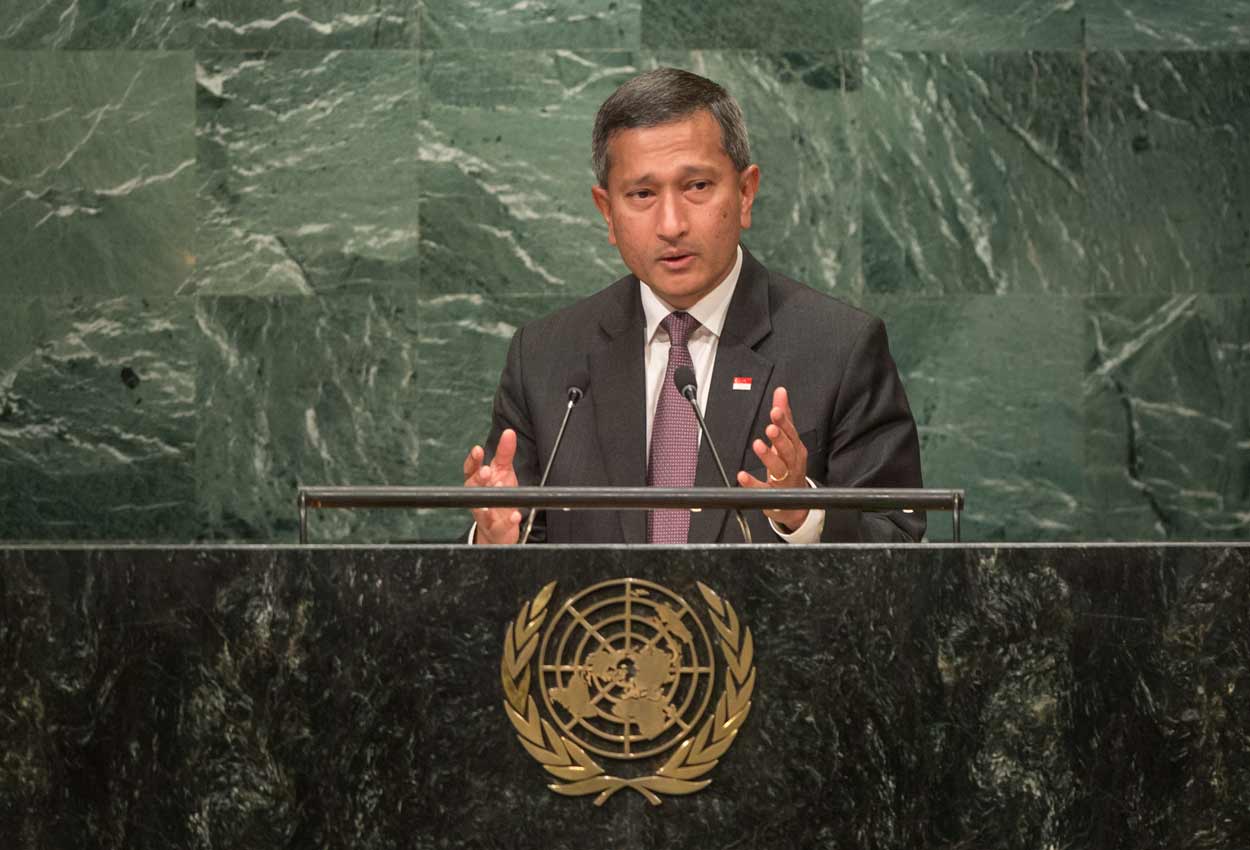Rules-based international orders like the one represented by the United Nations are critical to the survival of small states, Foreign Minister Vivian Balakrishnan told world leaders yesterday, as he outlined the predicament smaller nations face in a period of global uncertainty.
“The United Nations is essential for the survival and prosperity of small states,” he said during a five- minute address at the UN General Assembly in New York.
“We are usually at the receiving end of the decisions and actions of large powers. Fortunately, the General Assembly affirms the principle that all nations large and small, rich or poor have an equal stake and equal right to participate in shaping the discourse on global issues.”
Dr Balakrishnan added that a rules-based system that allows all states to deal with one another fairly was a “precondition to our existence as independent, sovereign states”. “We reject the notion that might is right. This is why small states are often the strongest proponents of the UN.”
He also said the uncertainty that has marked much of 2016 meant smaller countries have “had to work that much harder to stay afloat”.
“Small boats on a rough sea are more likely to be tossed and turned much more than a large tanker with heavy ballast,” he said.
“For our survival and prosperity, small states have to stay open and we have to stay connected to the world. But by definition, our very openness makes us vulnerable to external shocks and threats. Small states like us do not have the option of retreating inwards or opting out of the global system.”
And he also had a message for large powers. He said that though competition is inevitable, international relationships do not need to be a zero-sum game.
“All countries benefit when there is peace and stability. This is essential for building partnerships and economic co-operation everywhere,” he said.
Then, touching on international partnership and sustainable development, he laid out the many ways small countries have already worked together to play a role on the world stage.
He noted, for instance, how the Alliance of Small Island States had “played a catalytic role during climate-change negotiations” and how the Global Governance Group – a platform for small and medium-sized countries – has helped make the Group of 20 process more inclusive.
“Small states can play an even greater role, provided we work together,” said Dr Balakrishnan.
“Ultimately, small states need the United Nations to build the framework for building partnerships, promoting development and pursuing peace and security within a rules- based system.”
jeremyau@sph.com.sg

This article was first published on September 27, 2016.
Get a copy of The Straits Times or go to straitstimes.com for more stories.






